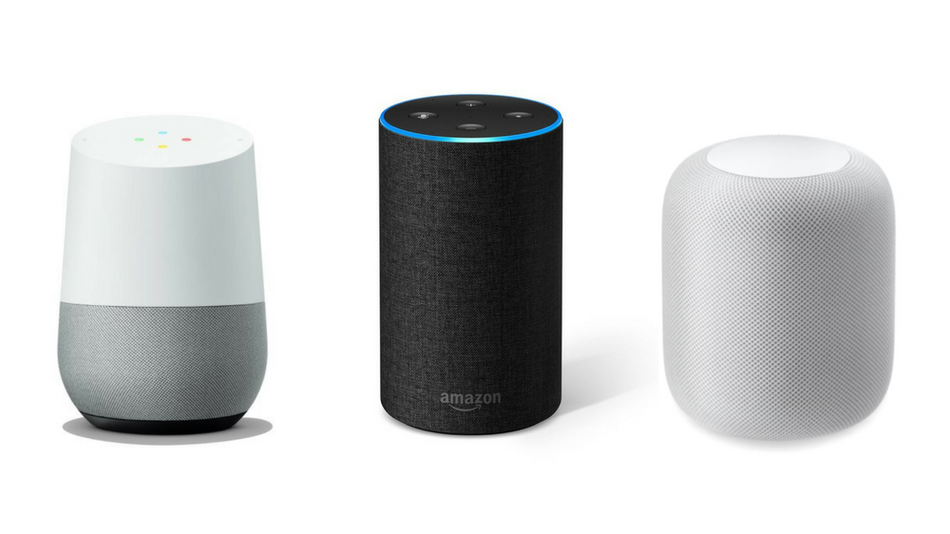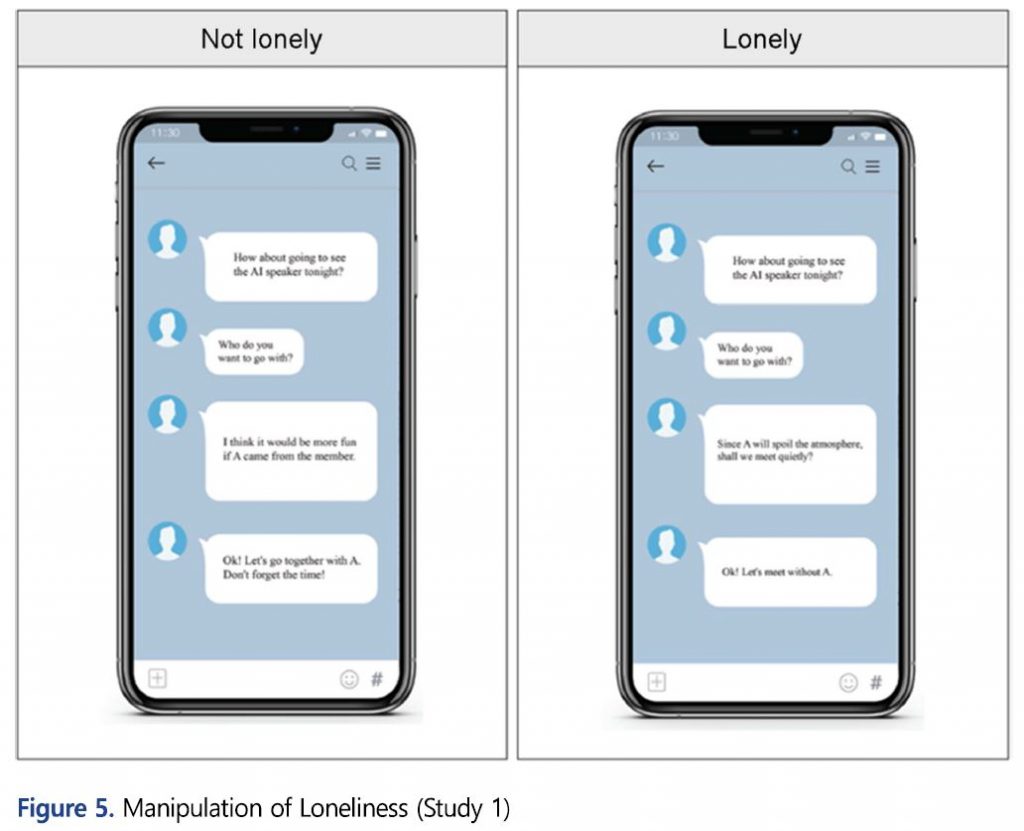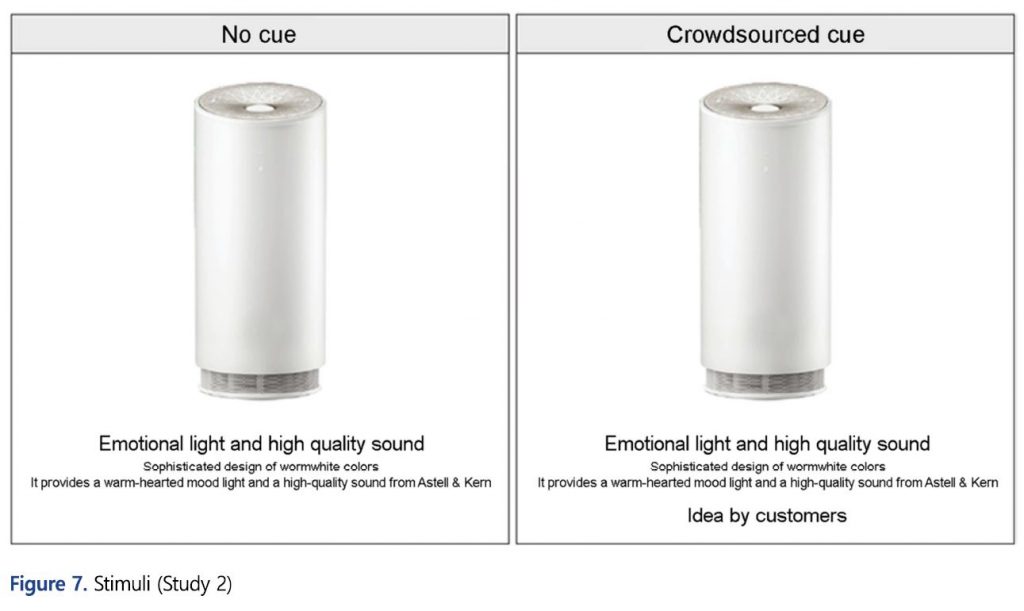신윤철, 주재우 (2019), “나홀로 집에: 외로움이 AI 스피커의 수용을 증가시킨다,” 대한인간공학회지, 38 (6), 499-515.

Objective: The aim of this study is to investigate the effect of situational and social loneliness on the AI speaker adoption and whether crowdsourced cue moderates the effect of situational and social loneliness on consumers’ adoption of the AI speakers.
Background: We study how to nudge consumers to recognize their needs for AI speakers, which is the first stage of their decision-making processes. In particular, we investigate whether two variables including situational and social loneliness as a psychological variable and crowdsourced cue as a behavioral economics variable jointly increase consumers’ adoption of AI speakers.
Method: We conducted two surveys to test two hypotheses: whether situational and social loneliness increases consumers’ adoption of AI speakers and whether crowdsourced cue moderates the effect of situational and social loneliness on consumers’ adoption of AI speakers. To secure the external validity of our experiments, we selected an actual AI speaker as an experimental stimulus and manipulated two variables in reality. Situational and social loneliness was manipulated by the content of the message shown on the messenger dominant messaging service and the crowdsourced cue was manipulated by the content of the promotional message about AI speaker shown on the poster.
Results: We obtained two findings. Firstly, when business school students felt lonely, their adoption of AI speakers was greater than when they did not feel lonely. Secondly, when there was a crowdsourced cue, design school students’ adoption of AI speakers increased in the lonely condition. However, design school students’ adoption of AI speakers did not increase when there was no crowdsourced cue even though when they are lonely.
Conclusion: Our findings suggest that consumers are more likely to adopt AI speakers when they feel situational and social lonely and when it reflects other consumers’ needs.
Application: This research is the first attempt to apply loneliness and crowdsourced cue to nudge consumers to recognize their needs about AI speakers, which increases their adoption of the new product. Unlike previous researches, this study is different in that it tries to solve the situational and social loneliness of young people. We propose AI speaker and crowdsourced cue as a solution to solve situational and social loneliness. Our findings provide fresh insights into designers and marketers who should develop an advertisement about their AI speakers.
Keywords: New product adoption, AI speaker, Loneliness, Crowdsourced cue, Behavioral economics

기존 연구에서는 노인의 외로움은 젊은 세대들이 느끼는 외로움과는 질적으로 차이가 있고, 국내외 AI 스피커를 제작하고 판매하는 A사와 S사 또한 노인의 만성적, 개인적 외로움에 집중하고 있다. 하지만 본 연구에서는 청년들의 일시적, 사회적 외로움 또한 만성적, 개인적 외로움만큼 중요한 감정이며 AI 스피커 수용의도에 있어 외로움이 노인뿐만 아니라 청년들에게도 효과적일 수 있음을 설문을 통해 증명했다. (pg. 510)

결론적으로 본 연구는 일시적, 사회적 외로움과 크라우드소싱 단서가 혁신 제품의 수용의도를 높이는 행동경제학 기법이라는 점을 일깨워준다. 기존에 알려진 정보 표시 방법의 변화, 공간 정리, 제품 진열, 명화 차용, 사용자 의견 무시에 더해서 신제품 수용을 증대하는 새로운 기법이 될 수 있음을 입증했다. 설문 결과를 염두에 두고, AI 스피커나 AI와 관련된 제품을 디자인하는 디자이너와 이러한 제품을 판매해야 하는 마케터는 크라우드소싱 단서를 광고에 입히는 순차적으로 사용자의 일시적, 사회적 외로움을 자극하는 마케팅 전략을 고려해야 할 것이다. (pg. 510)